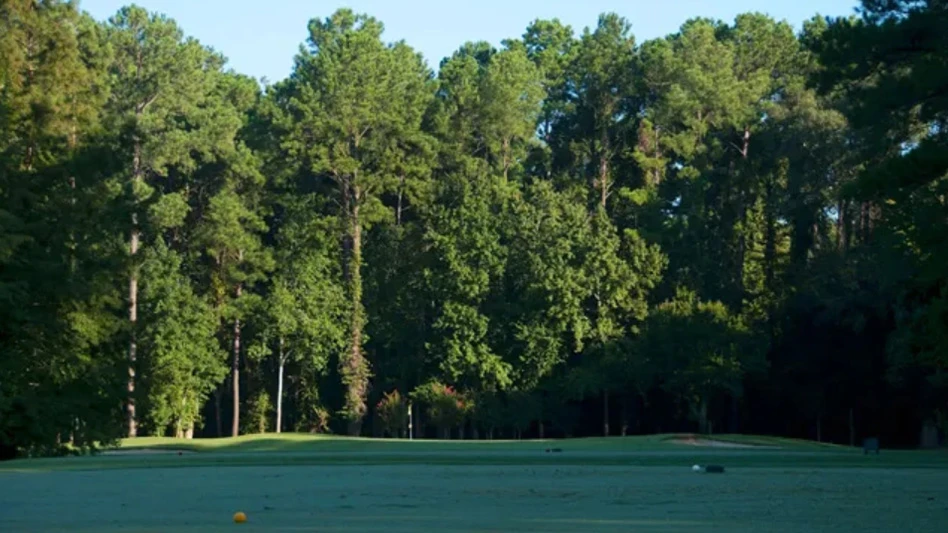I’m actually in Orlando at the GIS while I write this. Yes, I’m waaaaay behind schedule because of all the time and effort we put into preparing for the show. So, the bad news is I’m late and I’ve delayed the magazine by a day because I couldn’t make time to get this done. The good news is that, because of my tardiness, I can offer you a little perspective from the many smart folks I’ve already spoken with the past day or so while I’ve scampered about for meetings, events, video shoots, speeches, booth set up and all the usual craziness that comes with the industry’s biggest schmoozefest.
Any time you want to have an interesting conversation with any veteran grass god, just ask one simple question: “What’s up with jobs in your area?” They will glance around to see if anyone else is within earshot and say, “Well I’m sure you heard about so-and-so leaving the Blazer Club...” And then you will learn what’s really going on in that person’s local market.
Good jobs are, in a word, scarce in our happy little business these days and great jobs are rarer than talented Kardashians.
Our business – to put it crudely – has a bad case of employment constipation. And there’s no bottle of Ex-lax on the horizon to get things, er, flowing properly any time soon.
So, the tales being told by those veteran guys I’ve run into here in Orlando are ones you’ve probably heard before: 400 applicants for every good job that opens, long-term assistants being passed over for jobs they thought they’d been “guaranteed” and unemployed high-level supers accepting any position they can get to keep working, pay the bills and follow the professional path they’re passionate about.
Now there’s something different: the full-court press. The intense interest in those all-too-rare good jobs has created a new kind of team approach for top candidates. They are literally putting together a group of high-powered supporters who will back them through the process, do all the right things to “endorse” a candidate and even coordinate a mini PR effort on the candidate’s behalf.
It feels, for all intents and purposes, like a political campaign with managers, advisers and promotional people. There’s deal-making, arm-twisting, favor-granting and smoke-filled backroom deals. All to position an already highly qualified person for those $200,000+ opportunities.
Frankly, there’s absolutely nothing wrong with the approach. It’s just taking old-school recruitment advice and practices to a more sophisticated level. I do find it mildly disturbing to hear rumors that some savvy folks actually charge a candidate a fee for their services – successful or not. If true, it seems odd in a profession that’s always placed such a high value on mutual support and helping friends without expecting compensation in return. Yet, if the candidate chooses to go that route, so be it.
But I was a little uncomfortable when a major position search was described to me by two people – both guys I respect – as an “our team beat theirs” kind of thing. It felt like a competition…and I’m not sure that’s the best way to approach the employment process.
There are times in your life that you quite simply have to stand alone. Sure, advice and encouragement are great. But an organized effort where each side makes their case, whispers in the ears of decision-makers and pits their “marquee” endorsements against the other’s feels…weird. What happened to self-determination?
I wonder how long it will be before this mini-trend evolves – like politics has – to include smearing the opposition. I do not believe that any of the people who described this to me would stoop to something like that. They’re honorable men who understand the culture and traditions of this profession. But, when it becomes a game, there is always a temptation to bend the rules. Sooner or later, honor will lose out to winning.
Honestly, this isn’t something that the vast majority of you will experience directly. But, at the highest level of the business it is a distinct possibility every time a world-class job opens. It’s a once in a blue moon occurrence, perhaps…but it’s a sign of the times that the culture of the business is changing and becoming a bit more dog-eat-dog every day.
The late great Gordon Witteveen told me once that he feared the erosion of the “band of brothers” philosophy that has always bonded greenkeepers and superintendents for generations. I fear Gordon was more right than he knew. GCI

Explore the February 2011 Issue
Check out more from this issue and find your next story to read.
Latest from Golf Course Industry
- KemperSports taps new strategy EVP
- Audubon International marks Earth Day in growth mode
- Editor’s notebook: Do your part
- Greens with Envy 66: A Southern spring road trip
- GCSAA’s Rounds 4 Research auction begins
- Quali-Pro hires new technical services manager
- KIOTI Tractor boosts sales leadership, introduces compact loaders system
- Envu adds three new sales managers





